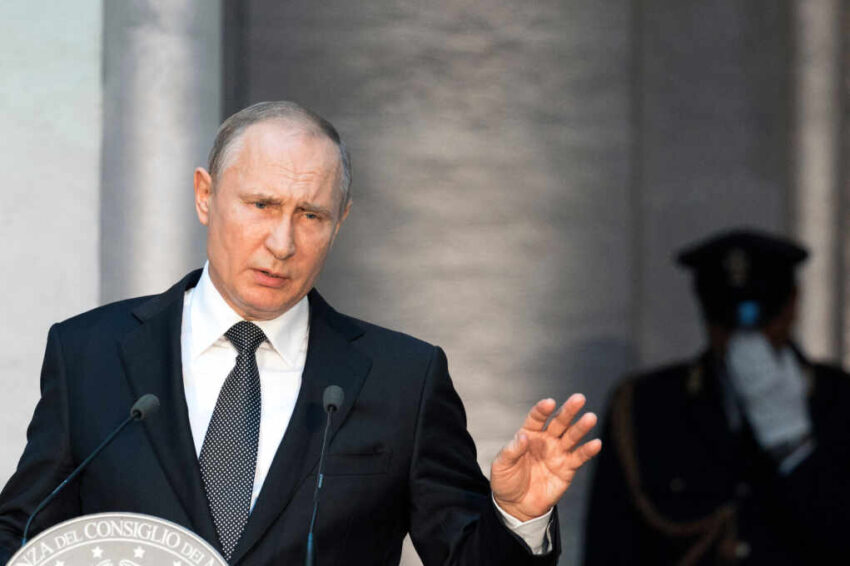President Trump’s new authority to impose 500% tariffs on Russia threatens to shake global markets, leaving allies and adversaries wondering what comes next.
Story Overview
- The Sanctioning Russia Act grants Trump authority to impose severe tariffs on Russia.
- Potential secondary sanctions could affect countries trading with Russia.
- Senator Blumenthal criticizes Trump for delaying sanctions enforcement.
- Putin agrees to a diplomatic meeting with Trump and possibly Zelenskyy.
Legislation Empowers Trump with Sweeping Sanction Powers
The Sanctioning Russia Act, passed by the U.S. Congress, empowers President Trump to impose drastic economic penalties on Russia if Moscow refuses to negotiate peace or escalates its aggression. The legislation allows for tariffs of up to 500% on Russian imports and secondary sanctions on countries trading with Russia, targeting Moscow’s economic resilience and its trading partners. This move marks a significant escalation in efforts to pressure Moscow into negotiations.
Russia’s continued military campaign in Ukraine, despite previous sanctions, prompted U.S. lawmakers to seek stronger measures. The new legislation aims to close loopholes and target Russia’s allies, particularly focusing on countries like China and India that have continued trading with Russia, thereby undermining Western sanctions. The U.S. and EU have coordinated sanctions since 2022, but Russia’s economy remains resilient due to alternative trade partners.
Stakeholders and International Dynamics
Key stakeholders in this development include President Trump, who holds the authority to impose penalties, and President Putin, who is directly affected by these sanctions. President Zelenskyy of Ukraine is also a significant figure, as the sanctions are meant to support Ukraine’s sovereignty and security. The U.S. Congress, with bipartisan support, has been pivotal in passing the legislation, while countries like China, India, and Brazil, major purchasers of Russian oil, could face secondary sanctions.
These sanctions could significantly impact global power dynamics. The U.S. holds economic leverage through sanctions, while Russia relies on alternative markets to mitigate Western pressure. The cooperation of China and India is crucial to the effectiveness of these sanctions, as they have been significant trade partners for Russia. The legislation’s success depends on Trump’s enforcement and the international community’s cooperation.
Potential Economic and Political Impacts
In the short term, the threat of severe tariffs and sanctions could heighten diplomatic tensions between the U.S., Russia, and third-party countries, causing uncertainty in global energy markets. Long-term implications include potential isolation of Russia from global trade and a realignment of global energy supply chains. There is also a risk of retaliatory measures from Russia and affected countries, which could impact U.S. and European businesses exposed to these tariffs.
“Sanctioning Russia Act threatens Moscow, allies with 500% tariffs” – Fox Business #SmartNews https://t.co/BykNpAVTfE
— Joe Honest Truth (@JoeHonestTruth) August 8, 2025
The sanctions could lead to a severe contraction of Russian trade, impacting global oil prices and causing increased hardship for Russian citizens, potentially leading to social unrest. Politically, this move could strengthen U.S. leadership in sanctions enforcement but may strain U.S.-China and U.S.-India relations. The energy, financial, and trade sectors may experience significant disruptions, leading to increased compliance costs for multinational firms and reconfiguration of supply chains.
Sources:
Fox Business: Sanctioning Russia Act Threatens Moscow, Allies with 500% Tariffs
Blumenthal Statement on Russian Sanctions
Bipartisan Legislation to Undermine Chinese Support for the Kremlin’s War Machine
ABC News: Trump’s Deadline Arrives, Putin Agrees to Ceasefire or Face Sanctions
White House: Addressing Threats to the United States by the Government of the Russian Federation
Click this link for the original source of this article.
Author: Editor
This content is courtesy of, and owned and copyrighted by, https://conservativeamericatoday.com and its author. This content is made available by use of the public RSS feed offered by the host site and is used for educational purposes only. If you are the author or represent the host site and would like this content removed now and in the future, please contact USSANews.com using the email address in the Contact page found in the website menu.








